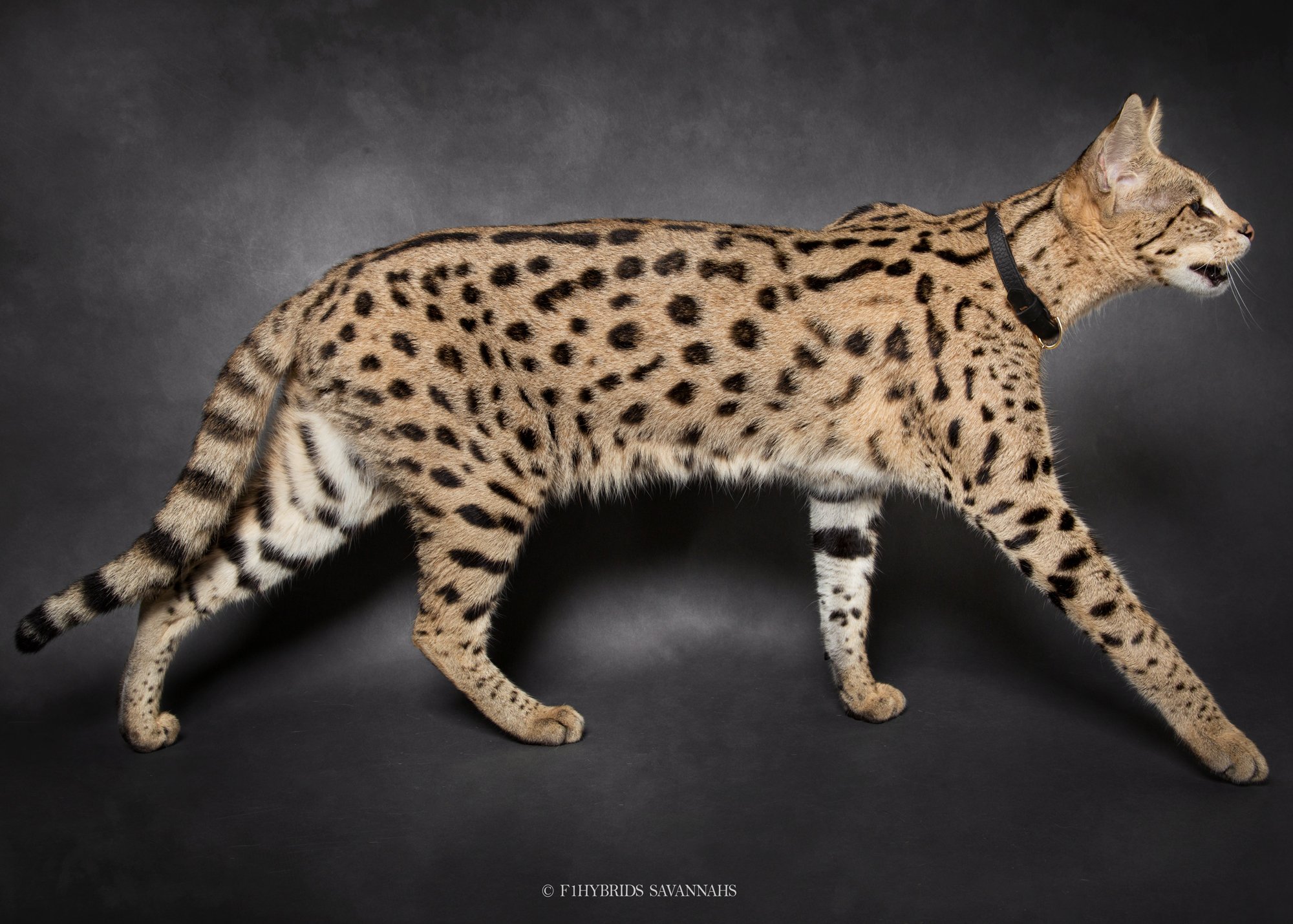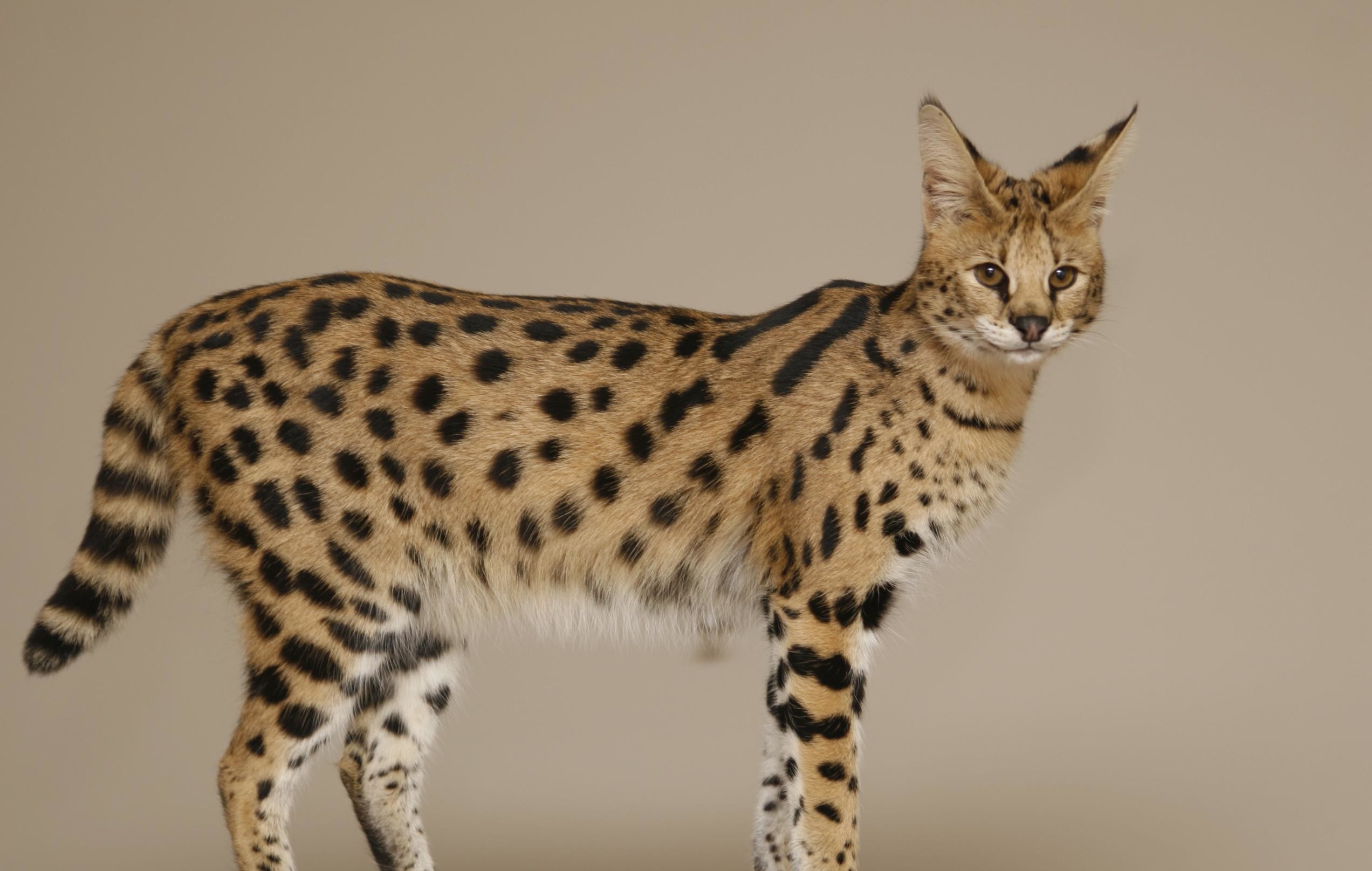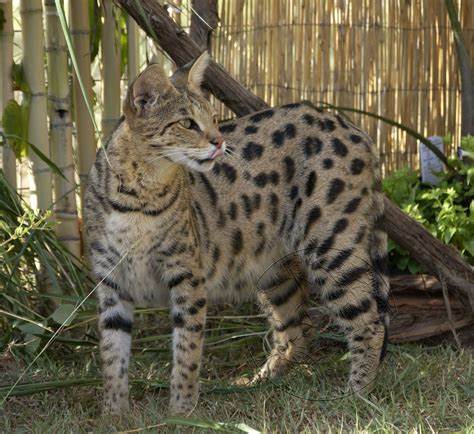Savannah: The Exotic and Intelligent Hybrid Cat

History of the Savannah Cat
The Savannah is a strikingly exotic cat breed that originated in the 1980s when breeders crossed a domestic cat with an African serval—a wild feline known for its long legs, large ears, and spotted coat. The first documented Savannah kitten, born in 1986, was bred by Judee Frank, and the breed quickly gained popularity due to its wild appearance and domesticated temperament.
The Savannah was officially recognized by The International Cat Association (TICA) in 2001, and today, it is one of the most sought-after hybrid cat breeds. It is classified into different generations (F1-F5) based on the percentage of serval ancestry, with F1 being the closest to the wild serval and F5 being fully domesticated.
Popularity of the Savannah Cat
The Savannah is a highly desirable breed among exotic pet enthusiasts, particularly in North America, Europe, and the Middle East. Due to its rare and exotic lineage, Savannahs can be expensive and difficult to acquire, especially higher-generation cats (F1-F2).
Physical Traits of the Savannah Cat
The Savannah is a large, athletic, and muscular cat with a striking resemblance to its wild serval ancestor.
• Coat: Short and dense, with a distinctive spotted or marbled pattern.
• Colors: Typically golden, silver, or black with dark spots, resembling a small cheetah.
• Size:
o F1-F2 Savannahs: Large and muscular, weighing between 15 to 25 pounds.
o F3-F5 Savannahs: More domesticated, weighing between 10 to 18 pounds.
• Head & Expression: Small, triangular head with prominent cheekbones and intense eyes.
• Eyes: Large, almond-shaped, and can be gold, green, or amber.
• Ears: Large, rounded, and set high, giving them an alert and inquisitive look.
• Tail: Medium to long, thick, and carried low.
• Body: Long-legged, lean, and muscular, with an impressive vertical jump (can leap up to 8 feet high!).
Behavioral Traits of the Savannah Cat
The Savannah is known for its high energy, intelligence, and strong bond with its owner, making it an ideal pet for active households.
• Highly Active and Playful: Requires lots of space to run, jump, and explore.
• Dog-Like Loyalty: Forms strong bonds with its owners and may even play fetch.
• Incredibly Intelligent: Can open doors, figure out puzzles, and learn commands.
• Loves Water: Unlike most cats, Savannahs enjoy playing in water.
• Social but Cautious: Friendly with family members but may take time to warm up to strangers.
• Vocal and Communicative: Uses chirps, meows, and trills to interact with its humans.

Why Choose a Savannah Cat?
For those looking for an exotic, energetic, and highly intelligent companion, the Savannah Cat is an excellent choice.
• Perfect for Active Owners: Thrives in homes with lots of play and stimulation.
• Extremely Loyal: Develops a dog-like attachment to its human family.
• Unique and Exotic: One of the most striking and rare cat breeds available.
• Highly Trainable: Can learn tricks, walk on a leash, and play interactive games.
• Playful and Entertaining: Loves climbing, hunting games, and exploring.
Caring for Your Savannah Cat
The Savannah requires regular exercise, mental stimulation, and a high-protein diet to stay happy and healthy.
• Grooming: Weekly brushing keeps the coat sleek and healthy.
• Exercise: Needs daily play sessions, ideally with cat trees, tunnels, and interactive toys.
• Mental Stimulation: Thrives on puzzle toys, fetch, and agility training.
• Nutrition: Requires a protein-rich diet, often benefiting from a raw or high-quality wet food diet.
• Companionship: Prefers a home with lots of interaction and playtime.
Health Considerations
The Savannah Cat is generally healthy, but some concerns include:
• Hypertrophic Cardiomyopathy (HCM): Some Savannah lines may be prone to heart conditions.
• High Energy Needs: Requires constant physical and mental engagement to prevent boredom.
• Legal Restrictions: Some regions restrict ownership of early-generation (F1-F2) Savannahs due to their wild ancestry.
• Special Dietary Needs: May require a higher protein intake than regular domestic cats.

Comparisons to Other Breeds
Compared to the Bengal Cat, which also has an exotic look, the Savannah is taller and more energetic, while Bengals have a more compact body and are slightly more social. Unlike the Maine Coon, which is also a large breed, the Savannah is leaner, more athletic, and requires more exercise.
Compared to the Chausie, another hybrid cat, the Savannah is more interactive and trainable, while the Chausie is more independent and aloof.
Is the Savannah Cat Right for You?
The Savannah is perfect for cat lovers who want an active, exotic, and highly intelligent feline companion. If you enjoy training, high-energy pets, and a cat that follows you around like a dog, the Savannah will be a fantastic choice.
However, if you prefer a relaxed, low-maintenance lap cat, this breed may not be the best fit.
Ready to Welcome a Savannah Cat?
United Pet Club is here to help you find the perfect Savannah companion. Whether you're looking to adopt or connect with trusted breeders, we provide valuable resources to guide you every step of the way.
Explore our platform to learn more about Savannah Cats, their history, and how to care for them. Contact United Pet Club today to start your journey with this exotic and high-energy feline!
